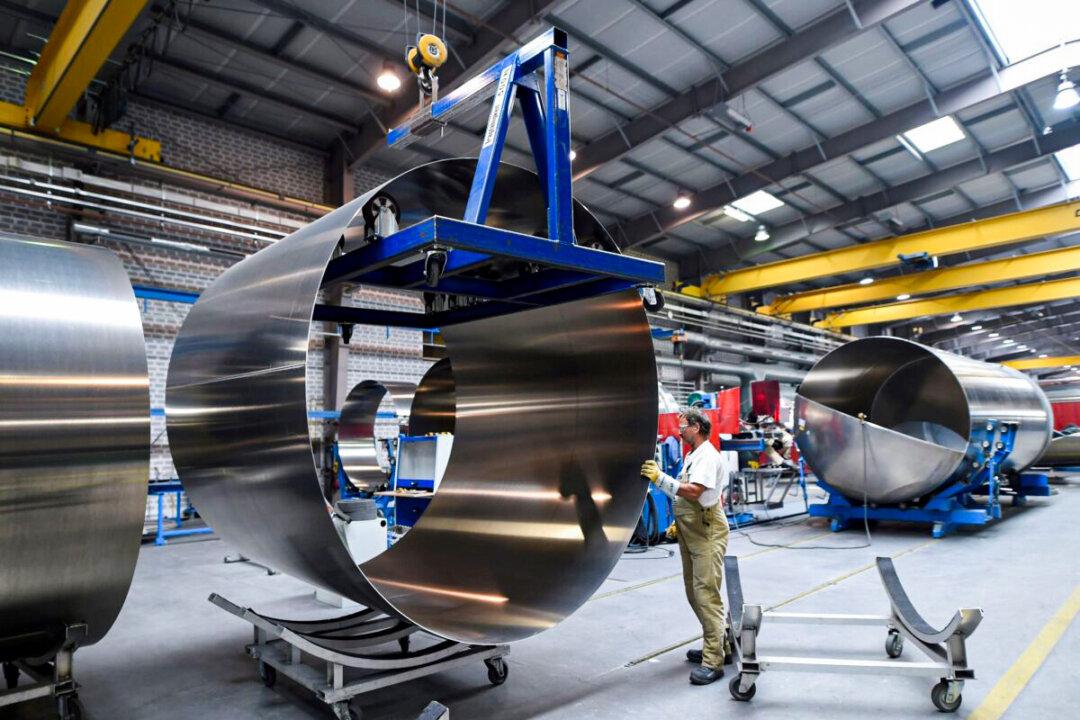Germany may be tipping into a recession amid a sharp drop in industrial production as many German firms faced difficulties completing orders due to supply chain snarls caused by ongoing pandemic restrictions and the Ukraine war.
Data released on May 6 by Germany’s Federal Statistics Office showed that industrial output fell 3.9 percent month-over-month in March, a number that’s nearly four times higher than the 1.0 percent drop economists expected.





